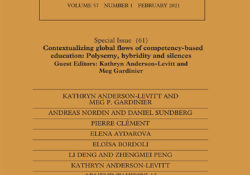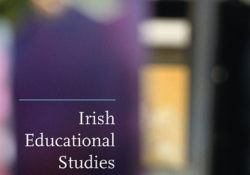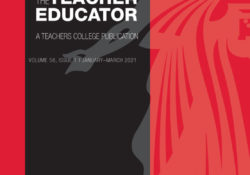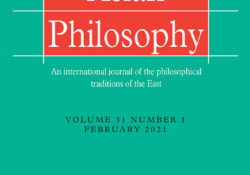eric.ed.gov har udgivet: Large-scale assessment regularly takes place in most jurisdictions across Canada, a fact not lost on the Fraser Institute and other right wing think tanks such as AIMS (Atlantic Institute for Market Studies) which use the test results as the primary basis for compiling school rankings at both the elementary and secondary level (see Gutstein, 2010). The frequency of external testing at different levels (provincial/territorial, national, international)–coupled with the high visibility accorded by the mainstream media to the results, usually in the form of league tables, and the imperatives of short term political mandates–have all contributed to a focus on improving one’s position within the list of rankings, as well as to a narrow focus on the tested subjects–math, science, reading. In this era of accountability-by-numbers, the elevated… Continue Reading →
Like this:
Like Loading...
eric.ed.gov har udgivet: This is the fourth in a series of reports from Reality Check 2006, an ongoing set of tracking surveys on education issues. Reality Check surveys attitudes among public school parents, students, teachers, principals and superintendents on a regular basis. In surveys on education, it is not uncommon for the public, parents and teachers to see serious problems in schools nationwide, but still view local schools as reasonably good. This may partly explain why local school leaders are so upbeat. Perhaps some are reticent about criticizing their own districts when a research organization contacts them. Still, given the high-octane attention the math and science issue has attracted from everyone, from Bill Gates to Secretary of Education Margaret Spellings, it is surprising so few principals and superintendents are concerned… Continue Reading →
Like this:
Like Loading...

tandfonline.com har udgivet en rapport under søgningen „Teacher Education Mathematics‟: ABSTRACT ABSTRACT This essay introduces the special issue on competencies or ‘twenty-first century skills’ as learning goals promoted by the OECD and other international organisations. The studies in this issue trace pathways through which competency-based approaches have been incorporated into national reforms, and explore how reform advocates, policy makers, educators, and experts have imagined ‘key competencies’ for compulsory education. Cases examine reforms in particular countries – Sweden, France, Russia, Kosovo, the United States, Uruguay, and China – as well as conceptualisations of competencies, ‘civic competencies’ and ‘global competence’ shaped by international experts. Based on these studies, this essay argues that the concept of competencies, central to the development of the OECD Programme for International Student Assessment (PISA), is a polysemous… Continue Reading →
Like this:
Like Loading...
eric.ed.gov har udgivet: This document presents first-hand experiences of teachers and students using the Internet in K-12 math and science, as well as articles on getting the right hardware, choosing an Internet service provider, designing an online project, and fostering acceptable use. Chapters include: (1) „Something in the Air‟ (Linda Maston): a computer-assisted environmental investigation; (2) „Penumbra‟ (Greg Lockett): a cooperative astronomy project that led to one young woman finding friendship and a new mode of self-expression; (3) „Tall Shadows‟ (Karen Nishimoto): study of the Earth’s circumference using the Internet; (4) „Pedagogically Speaking‟ (Bill Barnes): an online class for fourth through eighth grade math teachers examining the best kinds of cooperative activites; (5) „Hoop Happenings‟ (Caroline Brennan and Joanna Yantosh): math problem solving via e-mail between elementary and middle school… Continue Reading →
Like this:
Like Loading...
tandfonline.com har udgivet en rapport under søgningen „Teacher Education Mathematics‟: Link til kilde
Like this:
Like Loading...
eric.ed.gov har udgivet: These proceedings contain the papers of the 12th International Conference on Mobile Learning 2016, which was organized by the International Association for Development of the Information Society, in Vilamoura, Algarve, Portugal, April 9-11, 2016. The Mobile Learning 2016 Conference seeks to provide a forum for the presentation and discussion of mobile learning research which illustrate developments in the field. Full papers presented in these proceedings include: (1) Mobile Devices and Spatial Enactments of Learning: iPads in Lower Secondary Schools (Bente Meyer); (2) NetEnquiry–A Competitive Mobile Learning Approach for the Banking Sector (Marc Beutner, Matthias Teine, Marcel Gebbe and Lara Melissa Fortmann); (3) M-Learning Challenges in Teaching Crosscutting Themes in the Education of Young People and Adults (Marcos Andrei Ota and Carlos Fernando de Araujo Jr); (4) Mobile… Continue Reading →
Like this:
Like Loading...
tandfonline.com har udgivet en rapport under søgningen „Teacher Education Mathematics‟: Abstract Abstract Differentiated instruction occurs when teachers use students’ level of readiness, interests, and learning preferences to adjust the content, process, or products, which increases engagement and academic performance. However, teachers cannot offer every form of differentiation to every student all the time. There exist limits of resources as well as an essential balance that teachers need to make in terms of benefits for student learning on the one hand and classroom efficiency on the other. Additionally, the choices teachers make in terms of differentiation are also rooted in and stem from their personal beliefs systems. The goal of this research was to investigate teachers’ preferences for differentiating their instruction by using Q methodology. 32 teachers, coming from a single… Continue Reading →
Like this:
Like Loading...
tandfonline.com har udgivet en rapport under søgningen „Teacher Education Mathematics‟: ABSTRACT ABSTRACT An international survey of geoscience education has been carried out jointly by UNESCO and the International Geoscience Education Organisation (IGEO) to address the question of ‘How does school-level Earth science education compare across the globe? The survey gathered data from experts in 51 countries, comprising more than half the global population. Most countries (75%) had national standards covering Earth science but these were not followed or are absent in more than half the countries surveyed. Only around 25% of the countries with standardised assessments have Earth science-specific questions. Most teachers of Earth science are non-specialist teachers, whilst support of these teachers through courses and professional development is generally low, with very little financial support provided. Earth science teaching… Continue Reading →
Like this:
Like Loading...
eric.ed.gov har udgivet: This study was conducted to assess the first year of full implementation of a teacher incentive program (TIP) in South Carolina. The study examines the relationship between student achievement and teacher participation in one of several incentive model programs. The research also explores award winning teachers and their association with higher gains by students in reading and mathematics achievement scores. A stratified random sample of schools was selected from which all TIP award recipients and a matched control sample of nonparticipants were selected as subjects, limiting the study to classroom teachers of reading and/or math in grades 1-6 during the 1988-89 school year. Relevant characteristics for all teachers and their classes were recorded, along with achievement data for students. Results demonstrate that participants in TIP are associated… Continue Reading →
Like this:
Like Loading...
tandfonline.com har udgivet en rapport under søgningen „Teacher Education Mathematics‟: ABSTRACT ABSTRACT This paper discusses the Buddhist threefold model of wisdom which, on the basis of ethics, progresses from ‘study,’ to ‘reflection,’ to ‘cultivation,’ and argues that mindfulness plays a critical role at each of these steps, forming the common thread joining them together. Beyond opposing statically the mnemonic, conceptual, and attentional dimensions of mindfulness, this threefold paradigm of ‘mindful wisdom’ can serve to articulate them dynamically within the context of the path. The model is first examined with special consideration of Mahāyāna sources and its relation to the epistemic foundations of tradition, reason, and direct experience. Then, in reference to living Tibetan and Himalayan traditions, each step of wisdom is shown to rely upon a distinct aspect of mindfulness… Continue Reading →
Like this:
Like Loading...




